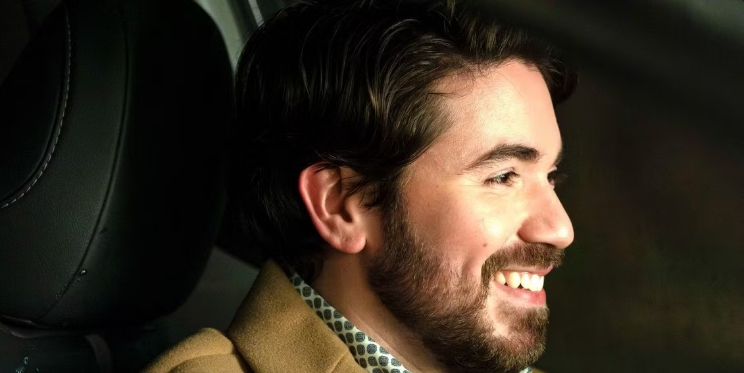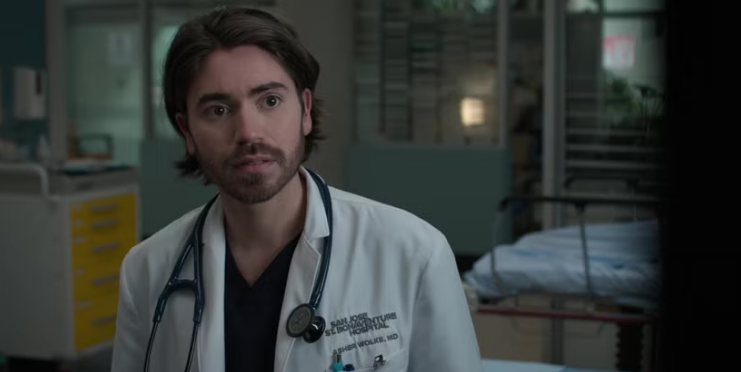The Good Doctor: Asher Wolke’s Disturbing Death, Explained (& What The Writers Said About It)

Asher Wolke’s (Noah Galvin) death in The Good Doctor is a shocking moment in the series and, while tragic, the writers are glad they made the decision to off the character. Over seven seasons of The Good Doctor, a young autistic surgeon by the name of Shaun Murphy (Freddie Highmore) works at the prestigious San Jose St. Bonaventure Hospital, where he puts his photographic memory and attention to minute details to good use. The rest of the staff of St. Bonaventure provides different points of view into the hospital.
One of these staff members is Dr. Asher Wolke, who first appeared in season 4, episode 3, “Newbies” and remained a recurring character for the rest of the season. He moved up to the main cast in season 5 and stayed there until his tragic death in season 7. Asher is a new surgical resident and a former Hasidic Jew, though he became an atheist after leaving his community at 18. He’s openly gay and begins dating Jerome Martel (Giacomo Baessato). Before the two can get married, however, Asher is tragically murdered.
Asher Wolke Was Killed In A Hate-Driven Attack In The Good Doctor Season 7

Though a staunch atheist for much of The Good Doctor, Wolke begins reacquainting himself with Judaism in season 7 after learning he can be queer and Jewish from his rabbi. With his parents dying, Asher determines he wants to fulfill their final wish to see him wed before they pass. However, he’s also second-guessing if he’s ready to get married to Jerome after two years with him. In season 7, episode 5, “Who At Peace”, Asher finally manages to reconcile his beliefs and Jewish upbringing with his sexual identity and sense of self.
At the end of the episode, Asher sees two men vandalizing his synagogue. He scares them off, threatening to call the police, continuing even after they warn Asher they are armed. As Asher leaves the synagogue to meet Jerome, the two men ambush him and strike him in the back of the head with a pipe, killing him. While his rabbi holds him, Jerome waits for his fiancé in a restaurant where they had a date. It’s a shocking end to The Good Doctor character and, for some, came out of nowhere.
What The Good Doctor Writer Said About Asher Wolke’s Death

The Good Doctor is filled with wild storylines, and some fans were disquieted by Asher’s death. Just as he was accepting parts of himself and his family that he had forgone, he was suddenly ripped from the show. It felt like there was more to tell in Asher’s story. The series writer, Adam Scott Weissman, thought that suddenness was the point, however (via TheWrap),
“We came into this [episode] with the thought that life doesn’t always have happy endings. Sometimes things happen suddenly and in a tragic way. Oftentimes [these issues] become real when it happens to someone you know, or someone we love on TV, so this horrible thing happens that also brings it home for our viewers.”
Weissman considers Asher’s death to be true to life, where sometimes horrible things can happen just when it feels like everything is going right. At the same time, Weissman considers Asher’s death “heroic”,
“It’s a sad note, but it’s also a high note in that it’s a heroic moment for him where he embraces all sides of his identity, and does it to protect someone else and to protect the sacred space.”
It is meaningful that after seasons of rejecting his Jewish heritage, he accepts and even defends it. While Asher may not have expected to die after the confrontation, he would certainly have known he was putting himself in a dangerous situation. It’s honorable that he did so to stand up for something that he truly believed in.
There is a hint of the unfortunate “Bury Your Gays” trope in Asher’s death, where gay characters are killed off for the sake of tragedy, but Weissman says his team was well aware of that while writing the episode. Despite the circumstances of Dr. Asher Wolke’s death in The Good Doctor, it’s not as problematic as those in more obvious “Bury Your Gays” offenders and does offer Asher a chance to defend the one part of himself he ignored for so long.

